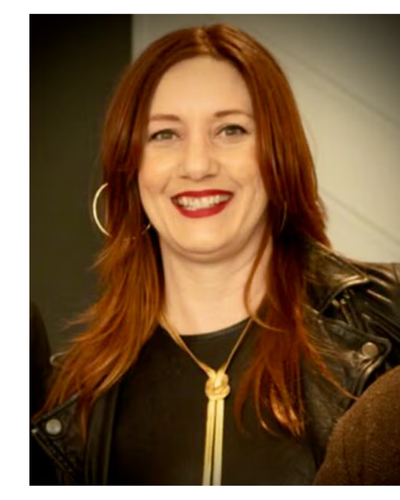
A Definitive Guide to Psychology Graduate Degrees and Trending Career Opportunities

Psychology is a multifaceted field that leads to a host of careers, projects, and passionate work for those invested in mental and behavioral science. This wealth of possibility also means an abundance of choices for professionals, each of whom takes their own path through graduate training and into new or elevated career opportunities.
This guide will help you think through which options are right for you. Some of the options are layered programs that combine one of the Master’s programs with a different Doctoral one. Others point directly toward a sector of work, like public mental health advocacy. Once you consider which educational opportunities align with your intended career path, consider this list of 20 growth career areas in the field of psychology, or forge a new career path of your own that suits your passion for understanding human behavior, social life, and health
Which Psychology Graduate Degree is Right for You?
- MS (Master of Science) - This program emphasizes both research methods and theories, including statistics, the behavioral sciences, and scientific approaches to psychology. Graduates often follow specific tracks based on their research interests and tend toward careers in research, analysis, tech innovation, or as a foundation for doctoral studies with a research or clinical focus.
- MA (Master of Arts) - Here, graduates mix classic and new approaches to psychological theory and practice. MAs often choose electives in philosophy and the arts, often with more flexibility in coursework and projects. This degree typically serves as preparation for doctoral studies or entry-level positions in counseling and human services.
- PsyD (Doctor of Psychology) - The PsyD is a doctoral program that focuses heavily on clinical practice and applied skills. Graduate students train to become practicing psychologists who can diagnose, treat, and provide therapy to clients in various healthcare and community settings.
- PhD (Doctor of Philosophy) - This is a research-intensive doctoral program that emphasizes scientific inquiry and original research. It prepares students to become academic researchers, university professors, or scientist-practitioners who advance the field through social-scientific research studies and clinical practice based in emerging research and frameworks in the field.
- MSW (Master of Social Work) - This advanced degree is situated in the field of social work, but it draws deeply from psychology and leads to related clinical practice: a program trains students in clinical therapy, community mental health work, and social justice advocacy. Master’s of Social Work graduates tend toward public- and/or patient-facing careers in therapy, case management, and social services that complement psychological practice.
The Constellation of Careers in Psychology: A Guide
The different routes to advanced work in Psychology detailed above can lead to a host of exciting careers, many of which are in increasing demand. Based on current market trends and growth projections, we’ve compiled a list of 20 careers with growing demand for people with an MS in psychology. These are driven by trends including increased national mental health awareness, advances in tech and innovation, an aging population, and more attention to the need for psychological perspectives in organizational strategy and healthcare settings.
Careers in Clinical Settings
- Licensed Professional Counselor - Not only do many psychology grads find clinical work with patients exceptionally rewarding, demand for their skills is growing quickly. The BLS projects that these jobs will increase by more than 19% in the next decade.
- Substance Abuse Counselor - This is a powerful way to address the growing field of addiction intervention. Here, psychologists support patients in recovery in an outpatient setting, supporting the reintegration to their work and community lives.
- Behavioral Health Consultant - Consultants often work in integrated healthcare settings alongside doctors, naturopaths, and therapists who address the holistic health needs–including psychological ones–of diverse patient populations.
Careers in Technology and Digital Health
- User Experience (UX) Researcher - These behavioral experts sit on product, design, and innovation teams, where they work directly with diverse pools of users to understand how technologies unfold in the context of their lived experience. This role leads many psychologists to work in product management and strategy, innovation consulting, and market research.
- Digital Mental Health Innovator- Psychologists with skill in digital technologies are finding success in developing and implementing app-based therapeutic interventions. These are getting a lot of attention from venture capital as the demand for these services continues to grow.
- Telehealth Leadership - These experts strategize and manage meaningful delivery virtual mental health services in a way that allows more people to get the help they need in a setting and at an expense that works for them.
- Health Technology Consultant - Often working in an agency of their own or leading a team with a larger firm, these experts advise tech, AI, and innovation teams on the psychological aspects and impact of health tech products.
Research and Data Analysis
- Market Research Analyst - Psychology graduates possess strong research skills; those who excel in quantitative modes like statistics or data analysis are in demand for roles that make sense of data, and that train AI and other tools to meaningfully interpret their results.
- Behavioral Data Scientist - Behavioral data scientists who combine data science techniques with the frameworks and theories of psychology and related fields are seeing exceptionally rapid job growth in recent years.
- Clinical Research Coordinator - As avenues for understanding human behavior are a priority for government, nonprofit and business sectors, there is a need for experts to manage these psychological and behavioral health studies.
- Program Evaluation Specialist - These leaders help to witness how programs affect the people they are meant to help and power equitable access to health care by making programs more effective.
Organizational and Business Psychology
- Organizational Development Specialist - As business and nonprofit organizations change rapidly in the age of AI and other social and policy changes, organizational development specialists help assess, improve, and support companies as they improve workplace culture and help teams work better together.
- Employee Assistance Program Coordinator - These professionals work directly with those needing support for mental health in the workplace and implement impactful workplace mental health services.
- Training and Development Manager - These professionals draw from principles in psychology, behavioral sciences, personal development, philosophy and global culture to develop employee development programs and trainings that inspire them to bring their best to their work and personal lives.
- Talent Acquisition Specialist - These experts in human behavior understand how people with different backgrounds, communication styles, and goals fit into larger organizations. These roles include titles like recruiter, PeopleOps leader, and human resource specialist.
Psychology in Specialized Growing Fields
- Applied Behavioral Specialist - These professionals work with and advocate for people who experience neurodiversity, developmental disability, memory disorders and other behavioral needs. This is an increasingly recognized field as a global movement to support these populations arises.
- Human Factors Specialist - Human factors specialists tend to sit with engineering and innovation teams, from self-driving cars to home appliances, and focus on human-technology interaction. They are in high demand as AI revolutionizes consumer and business products.
- Geriatric Mental Health Specialist - The growing elderly population is experiencing increased needs to support their aging. Some specialists work directly with patients; others conduct research that contributes to longer and more enjoyable years for seniors.
- Crisis Intervention Specialist - These experts apply their deep knowledge of human motivations, decision-making, and trauma to support patients and the public in emergency situations, and may be embedded on street teams, emergency services, or hospitals and clinics.
One Final Career Pathway
Number 20 on our list is open-ended: it’s any number of unique career paths a psychologist might pursue according to their passion, training, and a world in flux. It’s an exciting possibility for those driven to bring psychological perspective to new opportunities in a changing world.
By leveraging the deep understanding of human behavior you’ve earned in graduate school, you are ready to innovate across multiple sectors. You might work with a number of strategies to forge non-traditional careers: entrepreneurial ventures in applying AI in emerging technologies to deep domain knowledge of how humans behave and relate to each other, interdisciplinary collaboration with interface designers or city planners, entrepreneurial opportunities that leverage research-driven innovation. In the expansive professional field of psychology, the choice is up to you.
Interested in Hearing More? Your Next Steps
Ready to explore the path from MS to a new or elevated career path in Psychology? Contact Palo Alto University's admissions team to learn more about how we can support your journey to a career that leverages your training in psychology.
About the Author
 Ali Maaxa, PhD is a professor, a behavioral scientist in the tech sector, and the founder of MaaxaLabs, an agency for customer insights. A pioneer in human-centered approaches to Ai development, she is the author of two books, eleven peer-reviewed studies in global digital anthropology, and has been the recipient of the Mellon, Wilgus and Peacock Fellowships.
Ali Maaxa, PhD is a professor, a behavioral scientist in the tech sector, and the founder of MaaxaLabs, an agency for customer insights. A pioneer in human-centered approaches to Ai development, she is the author of two books, eleven peer-reviewed studies in global digital anthropology, and has been the recipient of the Mellon, Wilgus and Peacock Fellowships.
